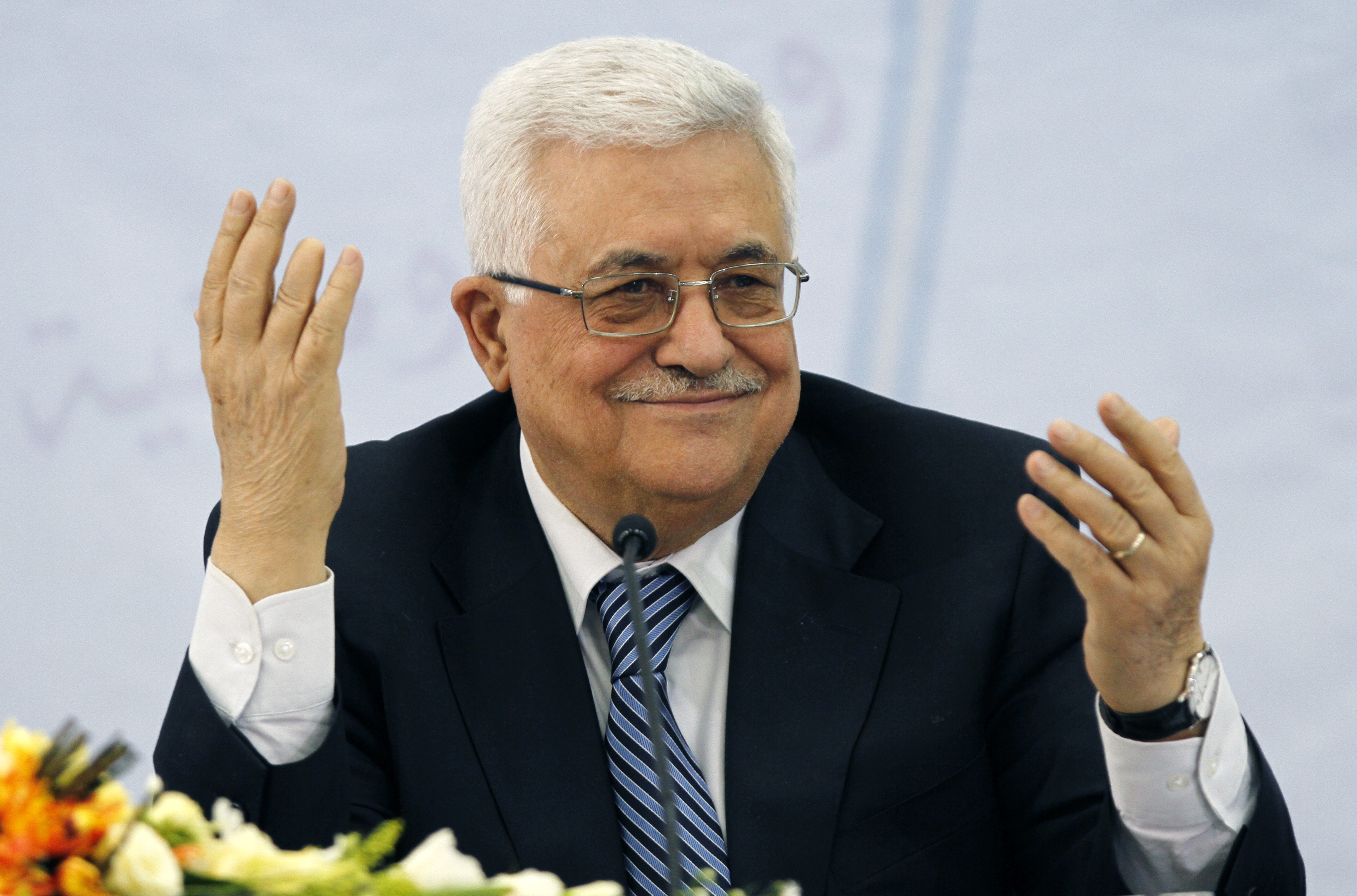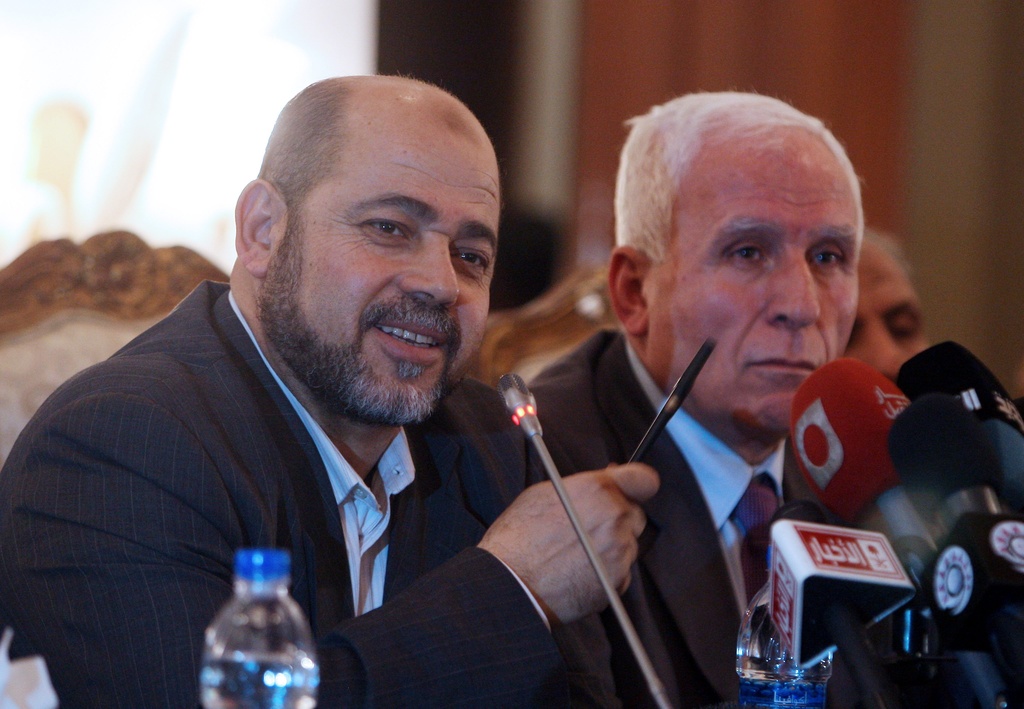Last roll of the dice for Palestinians at the UN

Palestinian President Mahmoud Abbas is calling for peaceful protests as he plays a high-stakes game to obtain formal recognition of Palestine by the United Nations.
The Swiss government has yet to publicly state its position on formal recognition of a Palestinian state.
“We are going to the Security Council to obtain full membership of the United Nations and the recognition of Palestine according to the 1967 borders,” affirmed Abbas during a meeting of the central council of the Palestinian Liberation Organization (PLO) in Ramallah on Wednesday.
But such a move goes against the wishes of supporters of a Palestinian state such as the United States, which argues that peace negotiations are the correct format for such debates.
According to Abbas, who plans to put the issue of recognition of a Palestinian state to the UN in September, the diplomatic offensive must be accompanied by peaceful demonstrations in Palestinian territories.
“We want to see massive action, organised and coordinated in each area. It’s the occasion to face the world and claim our rights,” Abbas said.
But such calls have annoyed Israel, which fears mass Palestinian demonstrations will transform into protest movements as witnessed elsewhere during the Arab Spring.
Israel is also critical of Palestine’s candidature for the UN, a demand which will be precisely formulated during a meeting of experts from the Arab League in Doha on August 4.
“Unilateral actions will not bring peace to the region. Like a false idol, they distract attention from the real voice of peace negotiations,” Israeli ambassador to the UN, Ron Prosor, told the security council.
Abbas was quick to rebuff the argument on a visit to Istanbul last weekend.
Swiss position
Yves Besson, former Swiss diplomat and director of the UN Relief Works Agency noted that Palestinians have been ready to restart peace negotiations based on the plan set out by US President Barack Obama last May.
“As long as there is not an offer which it can accept, the Palestinian Authority is doing everything it can to show that the block is coming from the Israelis,” said Besson.
“We are still in the scheme of the road map defined after the Oslo accords and the proposals of Bill Clinton which were taken up again by the Swiss-sponsored Geneva Initiative.”
While the Swiss government supports the framework for a peace process as described by Besson, it has yet to publicly state its position on formal recognition by the UN of a Palestinian state based on the 1967 borders.
“At the moment it is unclear whether a resolution on the recognition of Palestine will come before the UN General Assembly,” the foreign ministry said in a statement to swissinfo.ch. “The cabinet will deal with this question when the resolution is presented.”
Speaking to swissinfo.ch, Palestinian ambassador to the UN in Geneva, Ibrahim Khreisheh said he had met high-ranking members of the Swiss foreign ministry to discuss the subject.
“I think the Swiss position will be positive once it is aware of the contents of the draft resolution being prepared by Palestinian authorities for the UN,” Khreisheh said.
“I think it will be a flexible text, but a legal document which protects our right to recognition as a state within the 1967 borders, and opens the possibility to join the UN as a Palestinian state.”
Arab Spring
Besson said the Palestinian diplomatic offensive should be seen within the context of a highly volatile Middle East.
“The popular uprisings in the Arab world changed the game in the opinion of Palestinians,” Besson said. “The Palestinian Authority and the PLO are under pressure.”
He said support from the World Bank and the US, including high-level US assistance in organising police and interior security apparatus that Israel could agree to, had created resentment among Palestinians.
“Today, a lot of Palestinians accuse this police force of doing the dirty work for the Israeli occupation,” Besson said.
The overthrow of Egyptian President Hosni Mubarak, who was a firm support in efforts to contain Hamas, and unrest in Syria had complicated measures for both Abbas’ Fatah party and for Hamas, which controls the Gaza Strip.
“The Islamists who rule the Gaza Strip are also in a weakened position since the beginning of protests against its mentor, the regime in Damascus,” said Besson. “The influence of Damascus and Cairo is diminishing, so the field of possibilities for both Hamas and for Fatah is growing.”
Besson said it was too early to say whether the diplomatic tactics of the Palestinians will pave the way to renewed peace negotiations.
“But the Palestinians know that time and demographics are on their side, with or without a State,” he said.
Following the military conflict in the Gaza Strip, resolution 1860 (January 8, 2009) called for an immediate, durable and fully respected cease-fire leading to the full withdrawal of Israeli forces from the area and unimpeded provision and distribution of humanitarian assistance.
Shortly before the outbreak of war in Gaza, resolution 1850 (December 16, 2008) declared the council’s commitment to the irreversibility of bilateral negotiations and its support of the Annapolis peace process.
Resolution 338 (October 22, 1973) called for a cease-fire in the Yom Kippur War and the complete implementation of resolution 242.
Following the Six Day War resolution 242 (22 November, 1967) emphasised the inadmissibility of the acquisition of territory by war, and called for the respect of the sovereignty, territorial integrity and political independence of every state in the area.
Source: UN
(Adapted from French by Sophie Douez)

In compliance with the JTI standards
More: SWI swissinfo.ch certified by the Journalism Trust Initiative















You can find an overview of ongoing debates with our journalists here . Please join us!
If you want to start a conversation about a topic raised in this article or want to report factual errors, email us at english@swissinfo.ch.